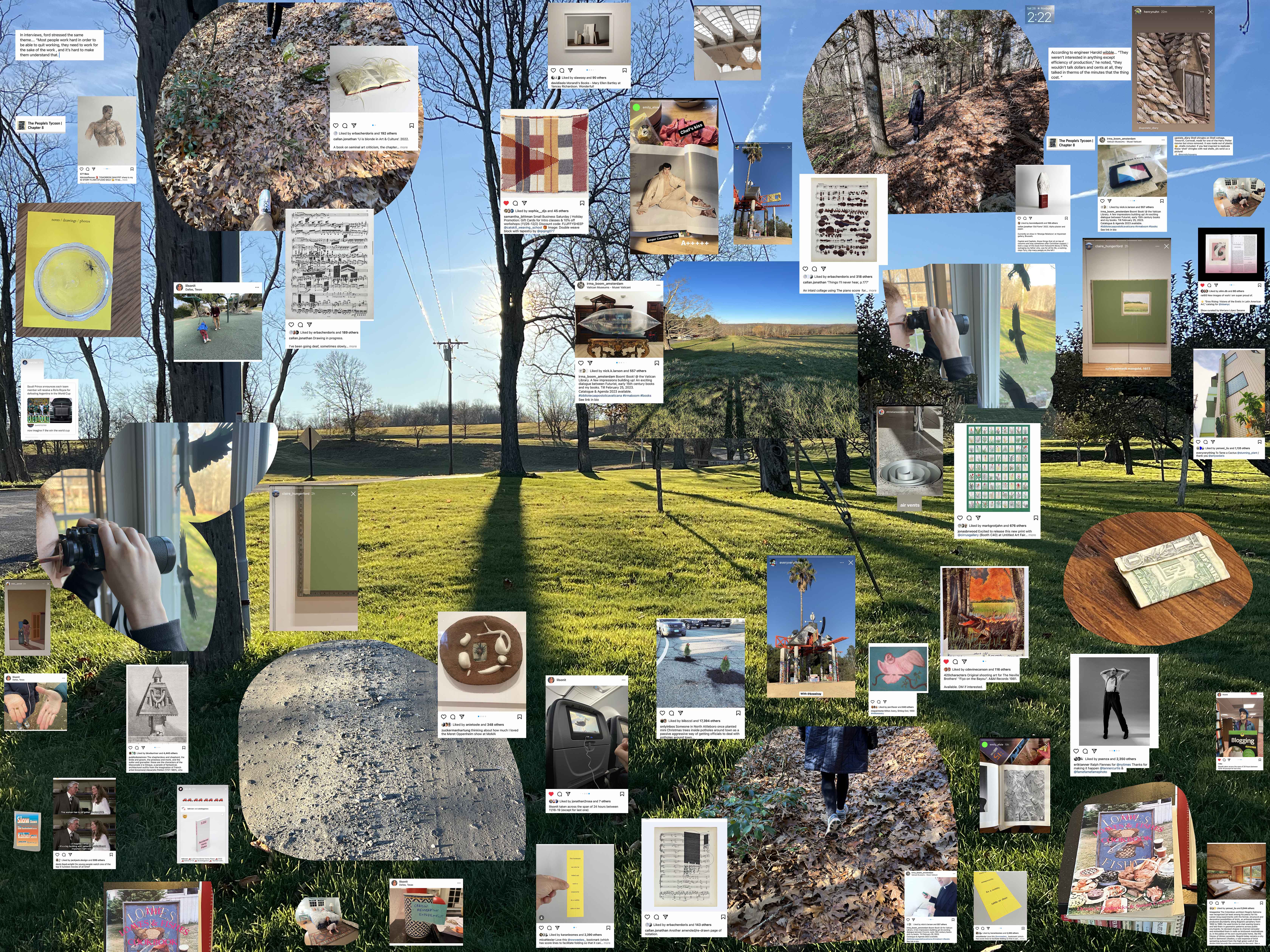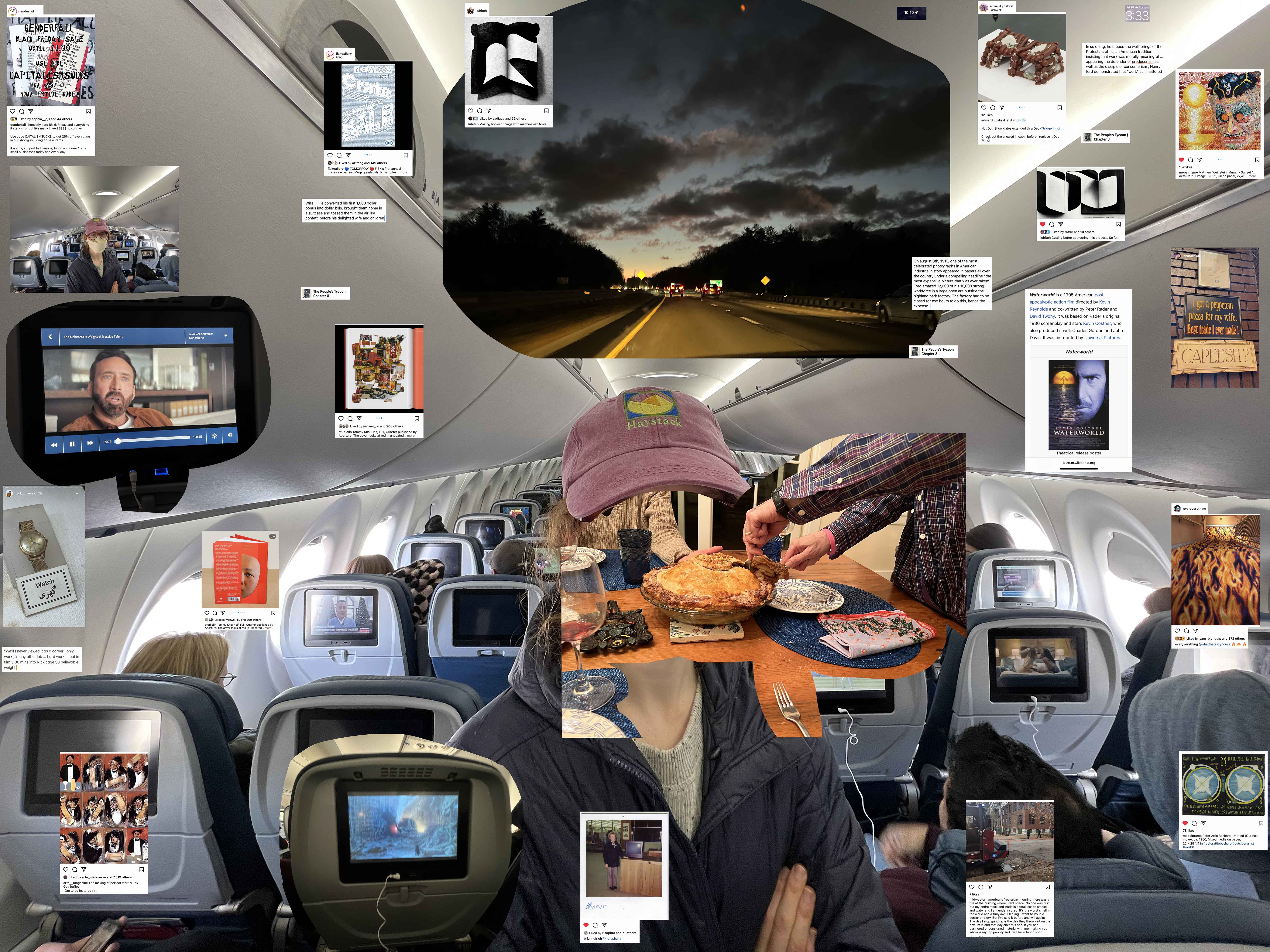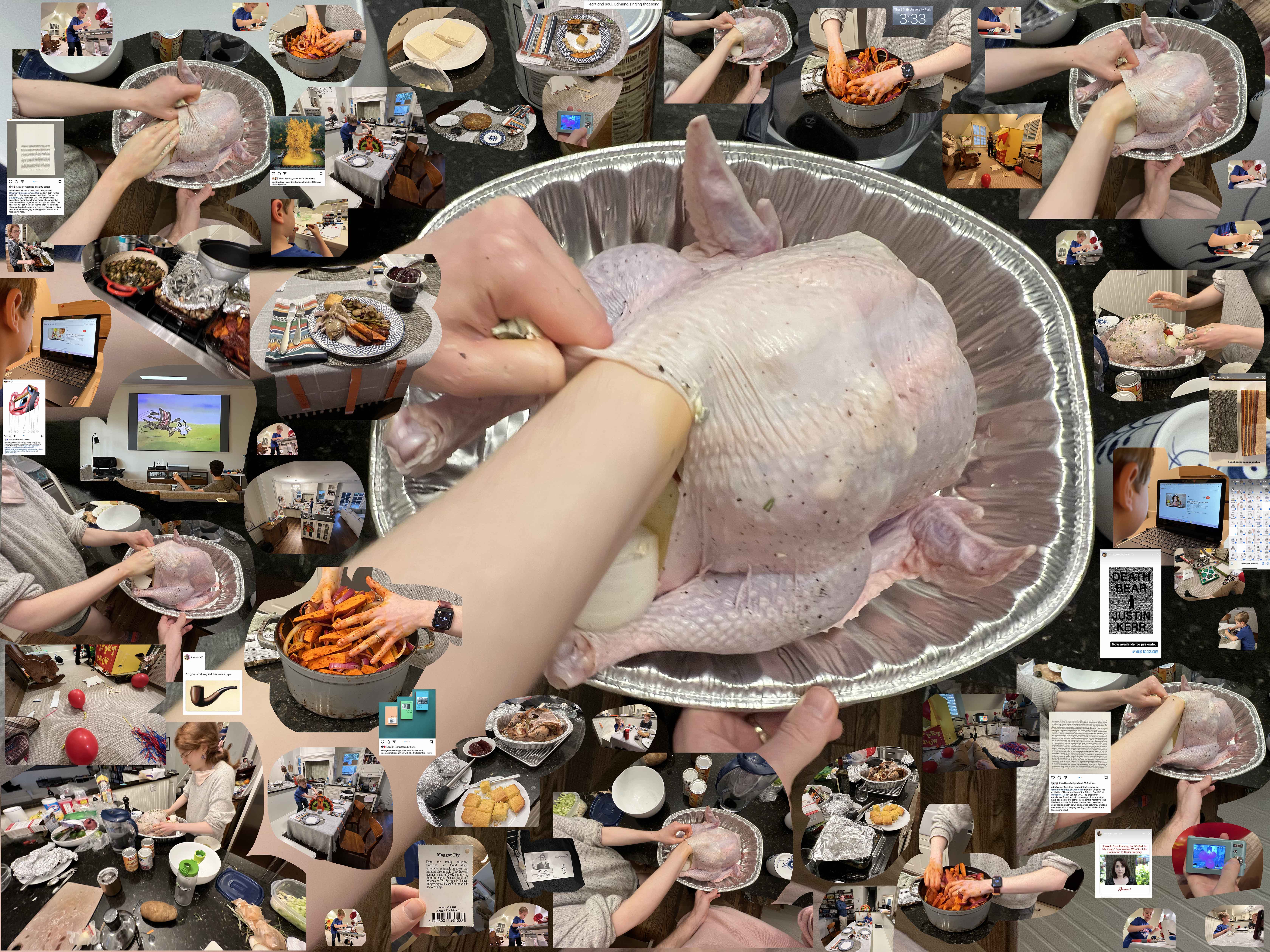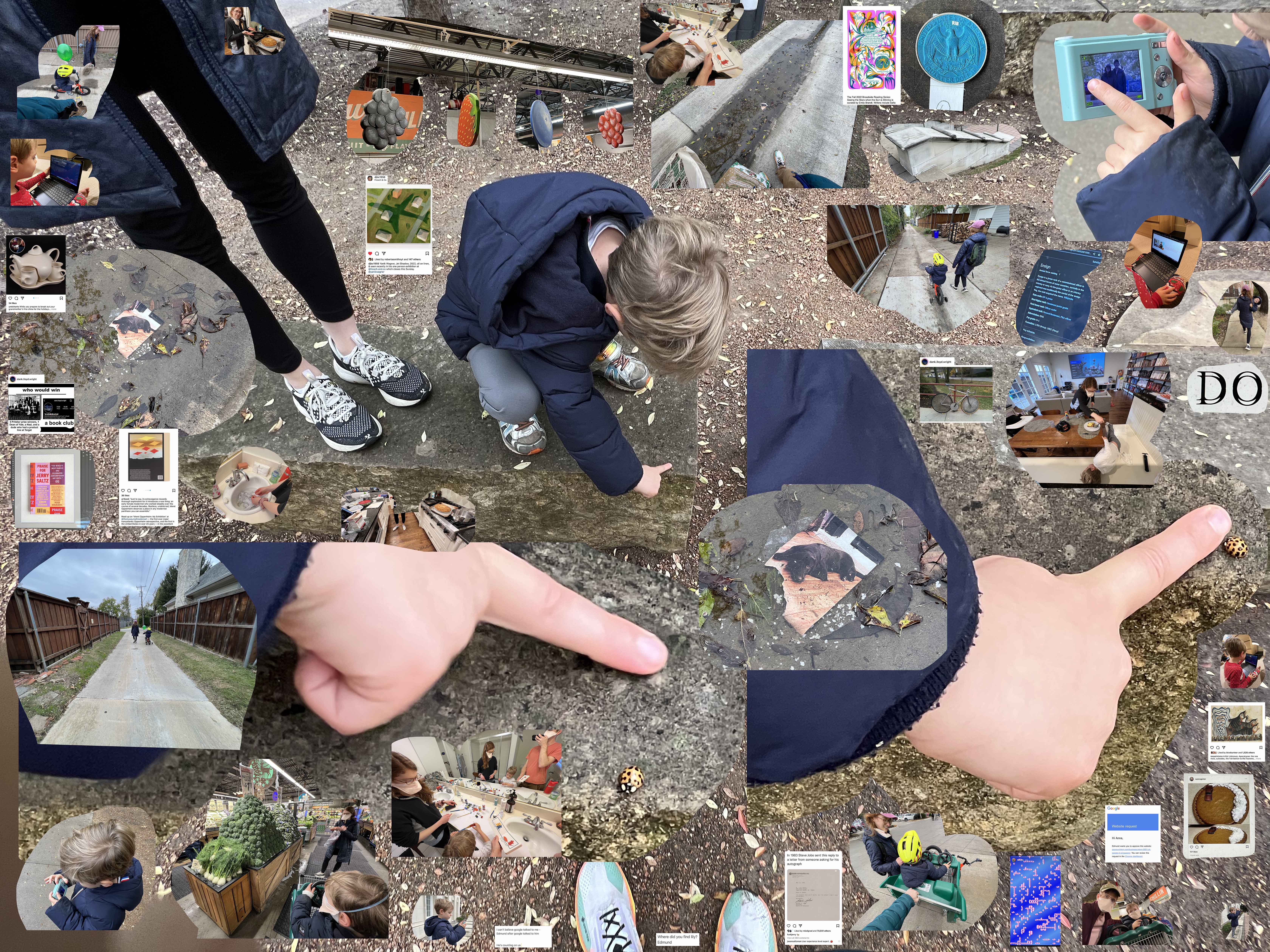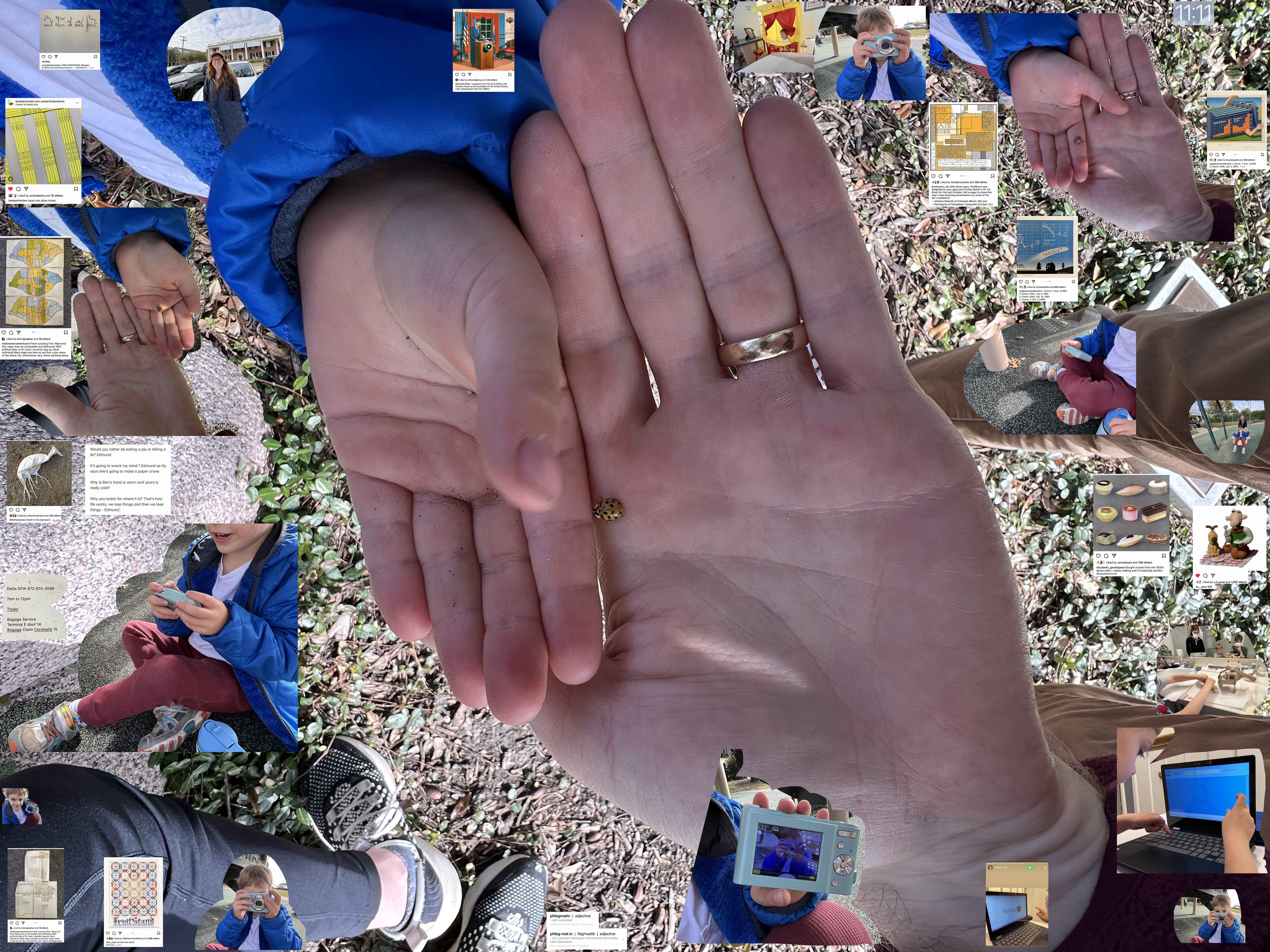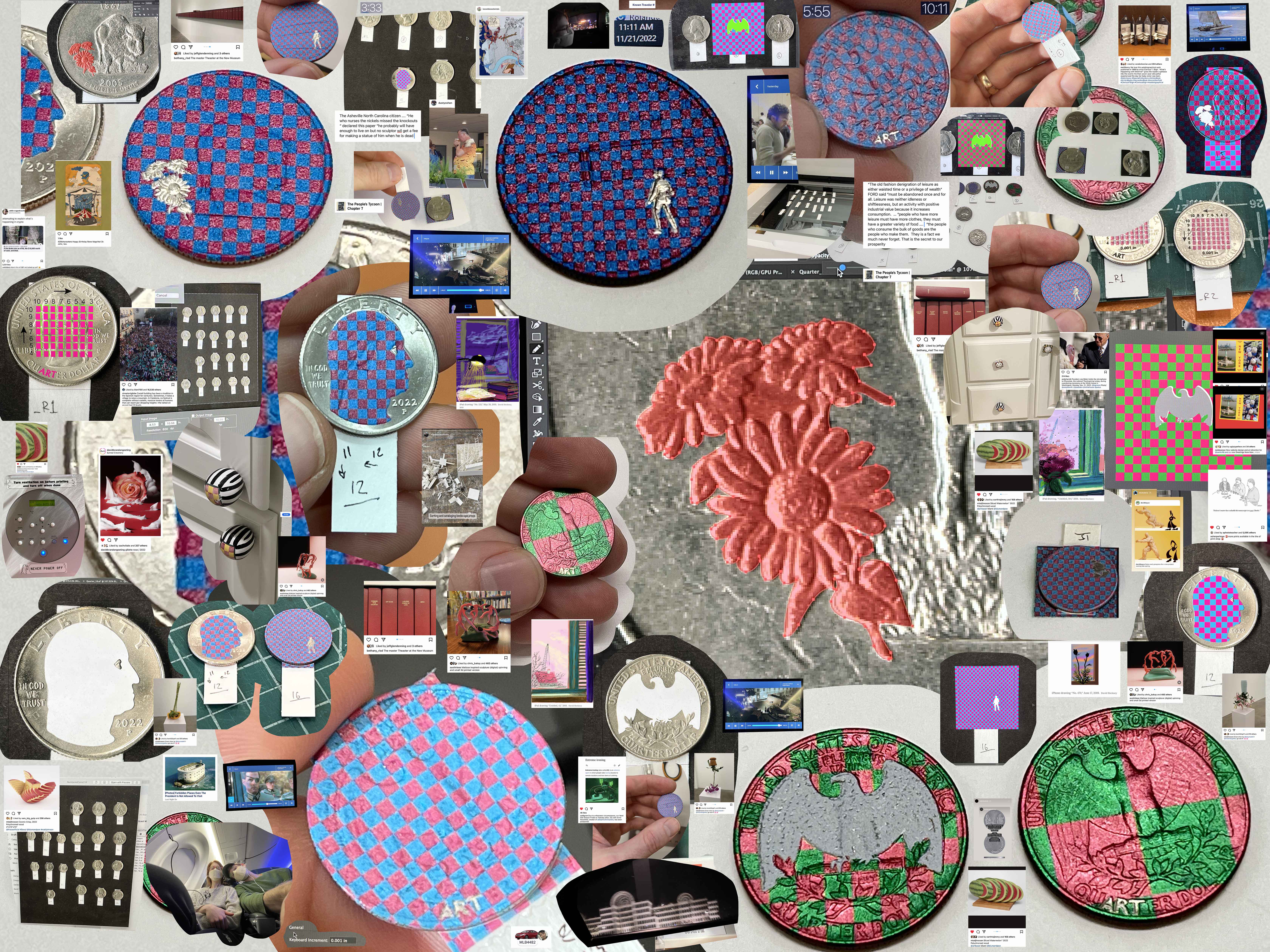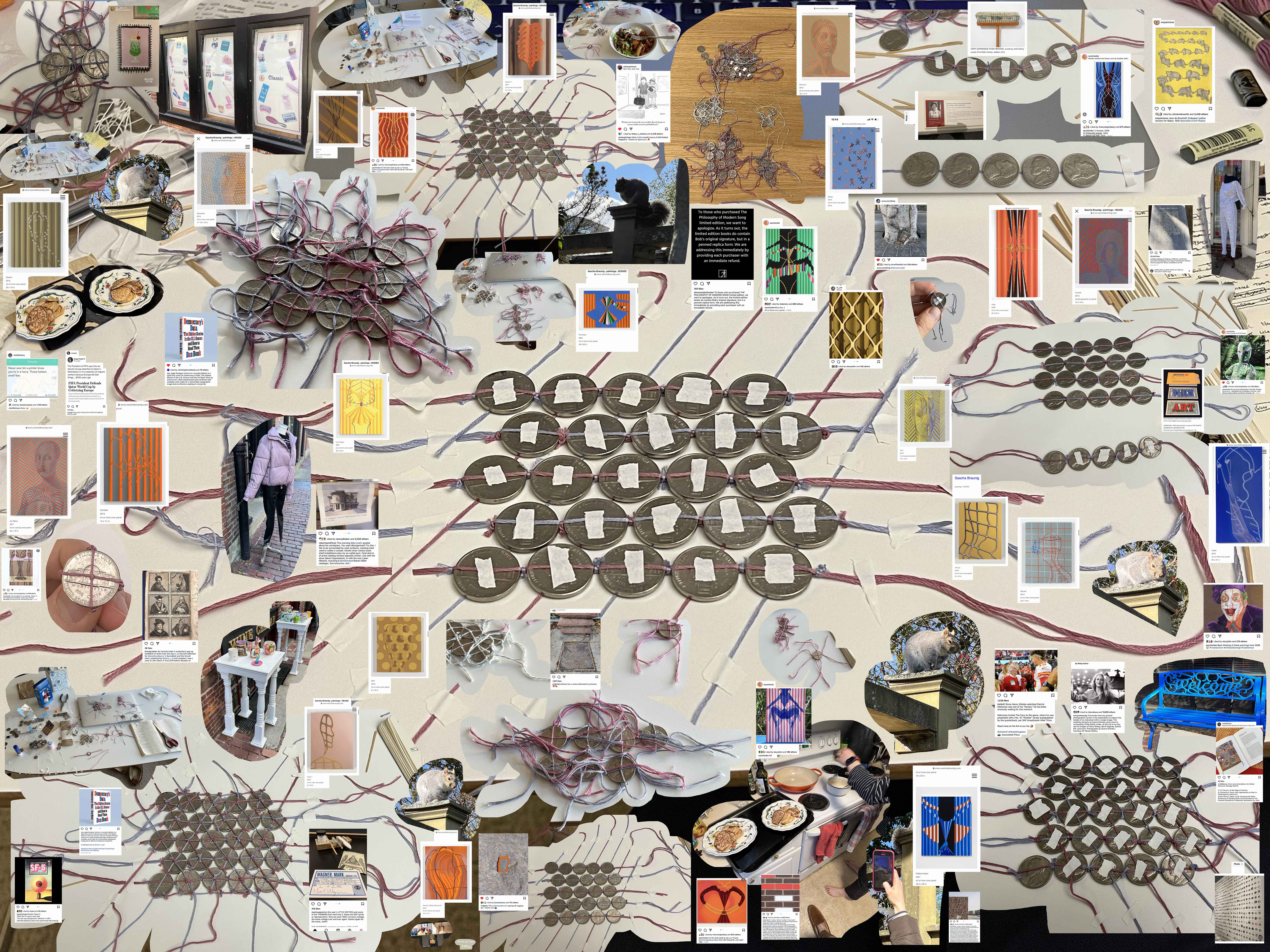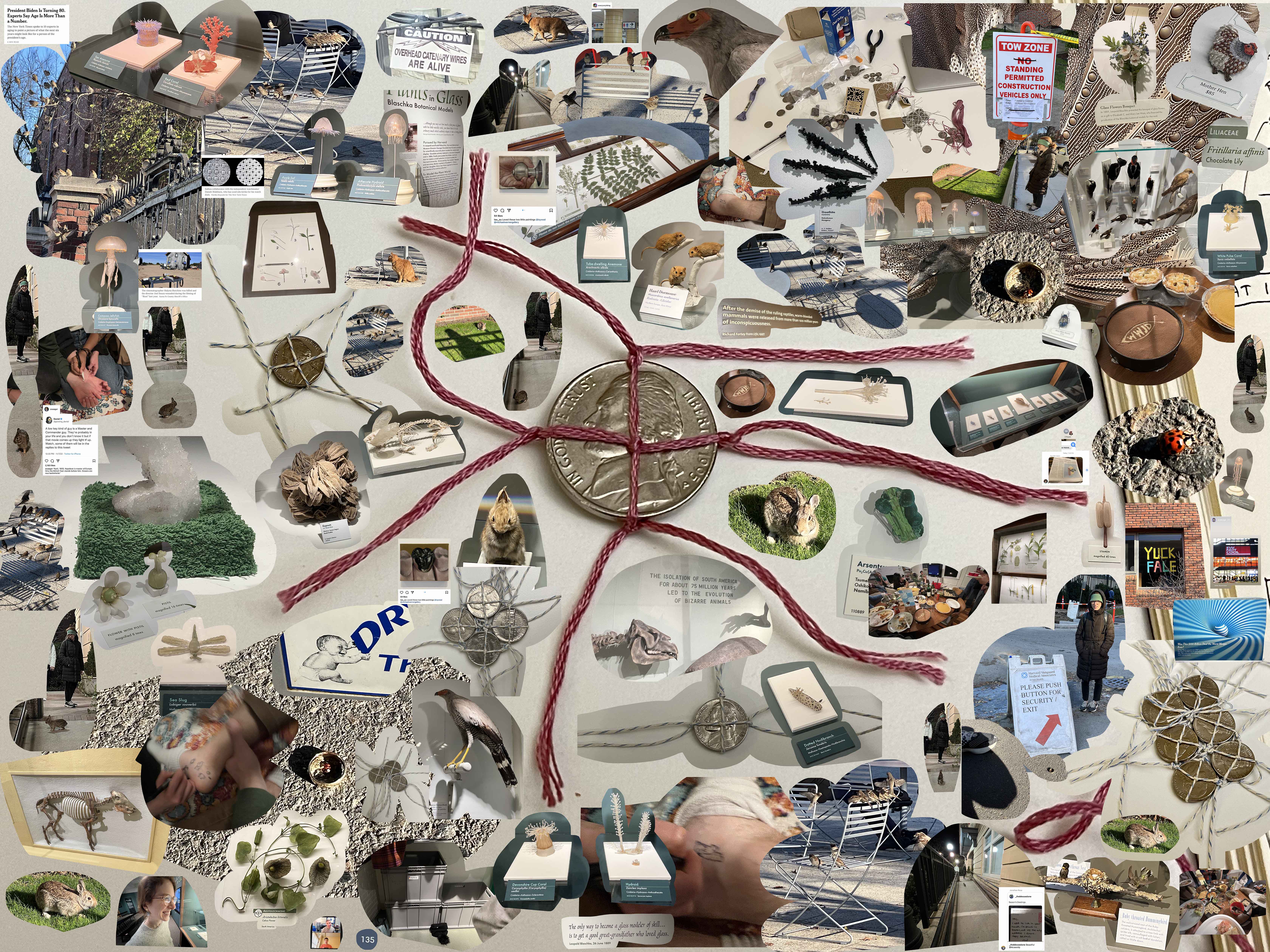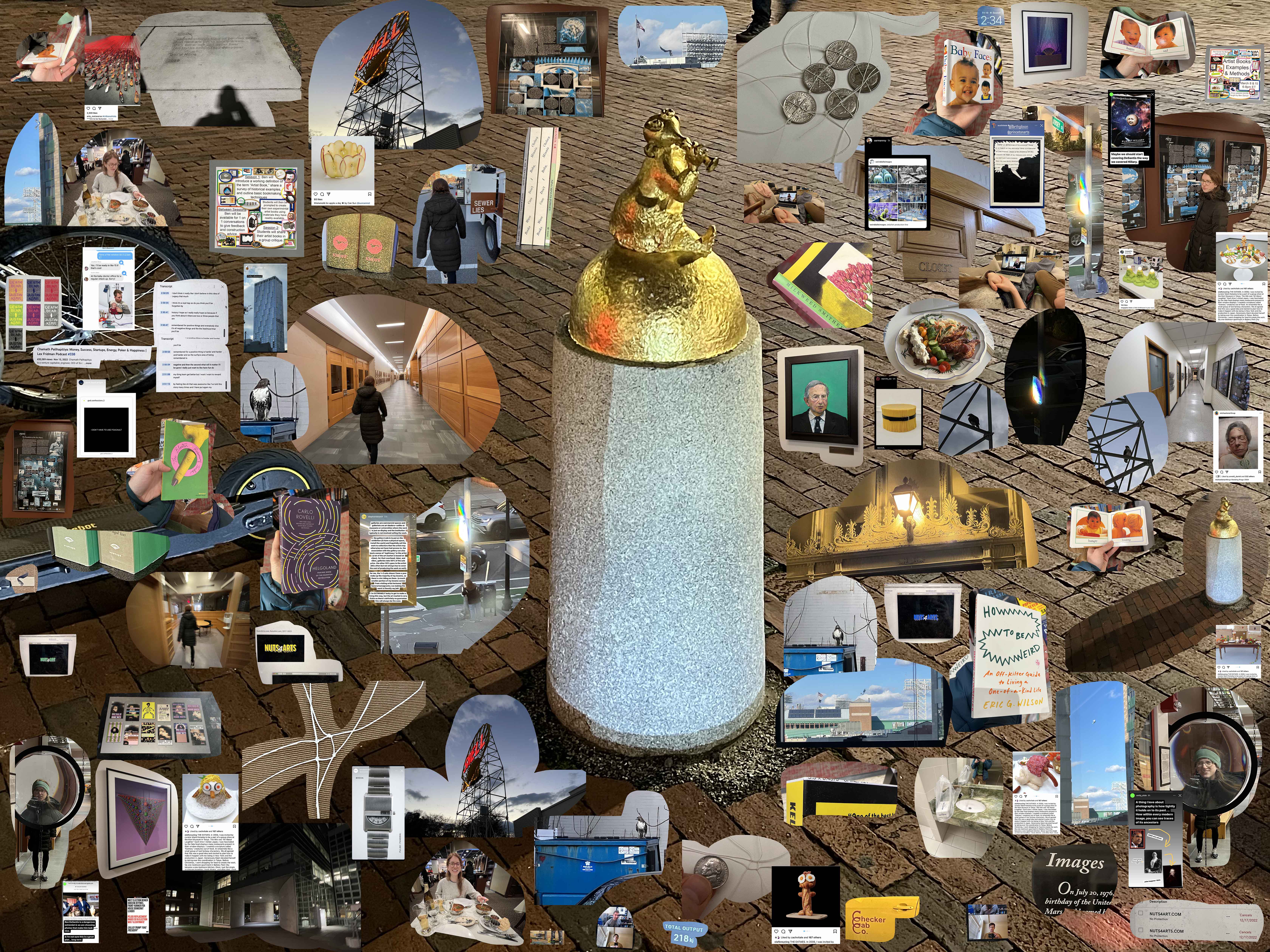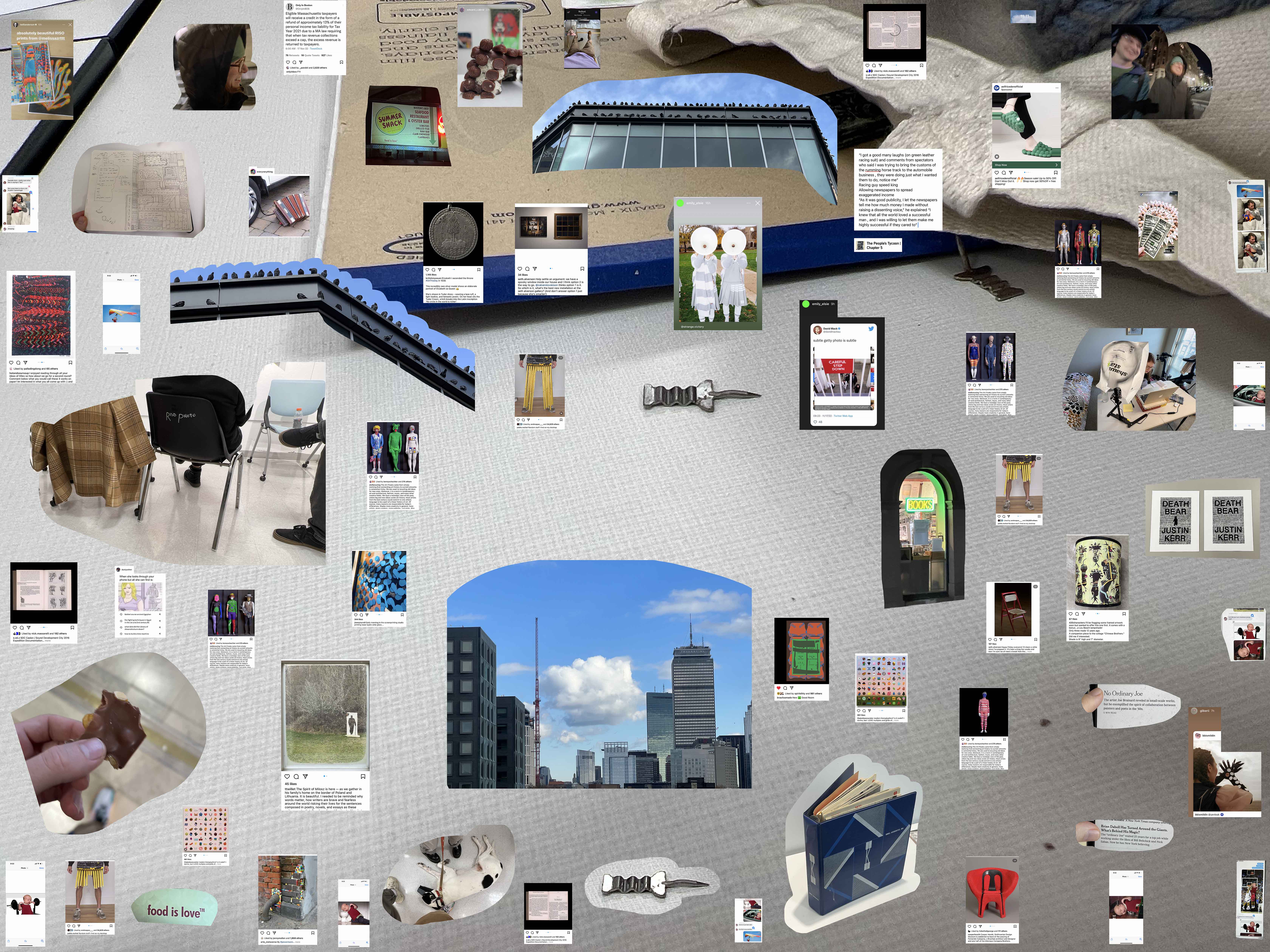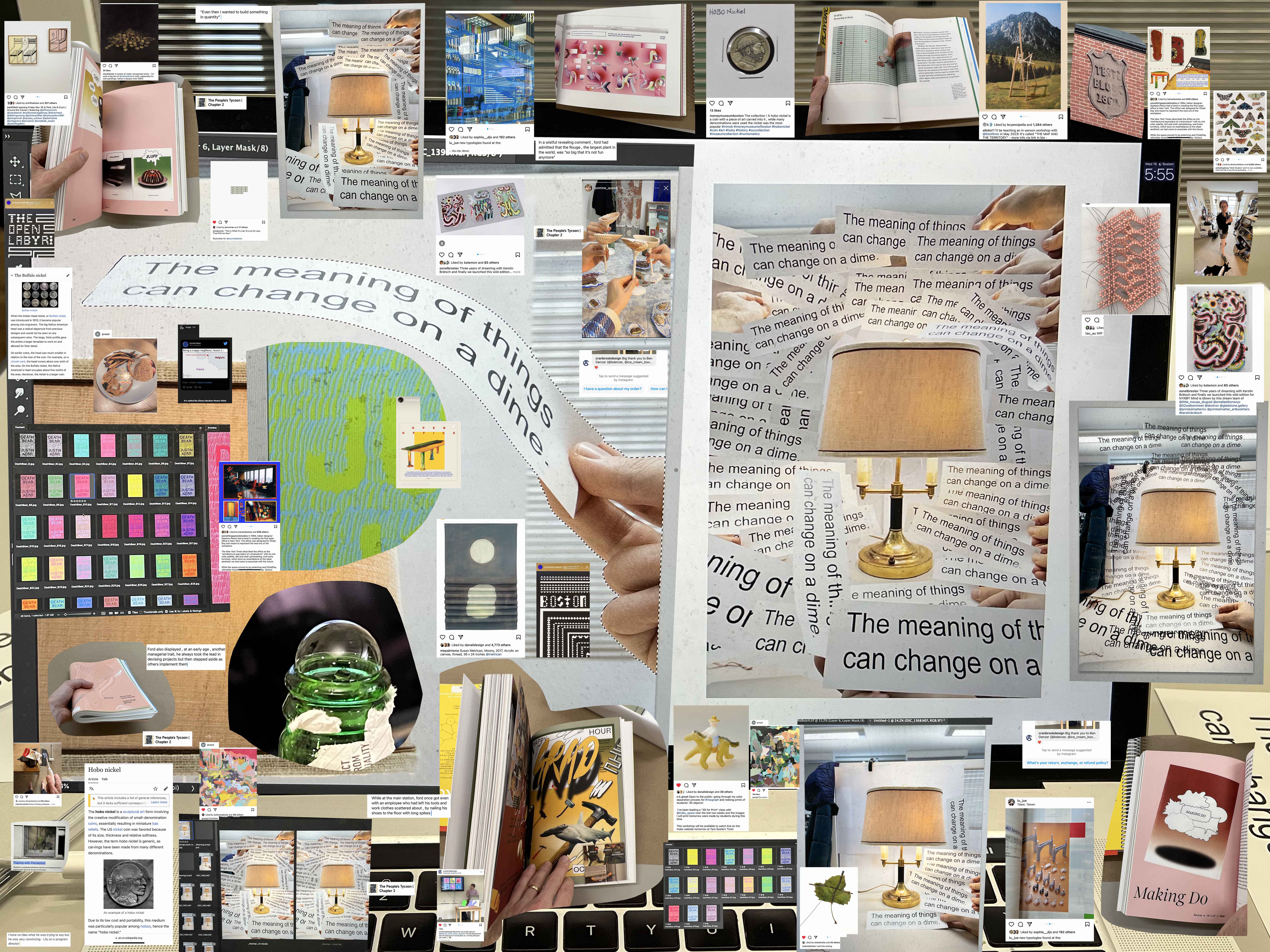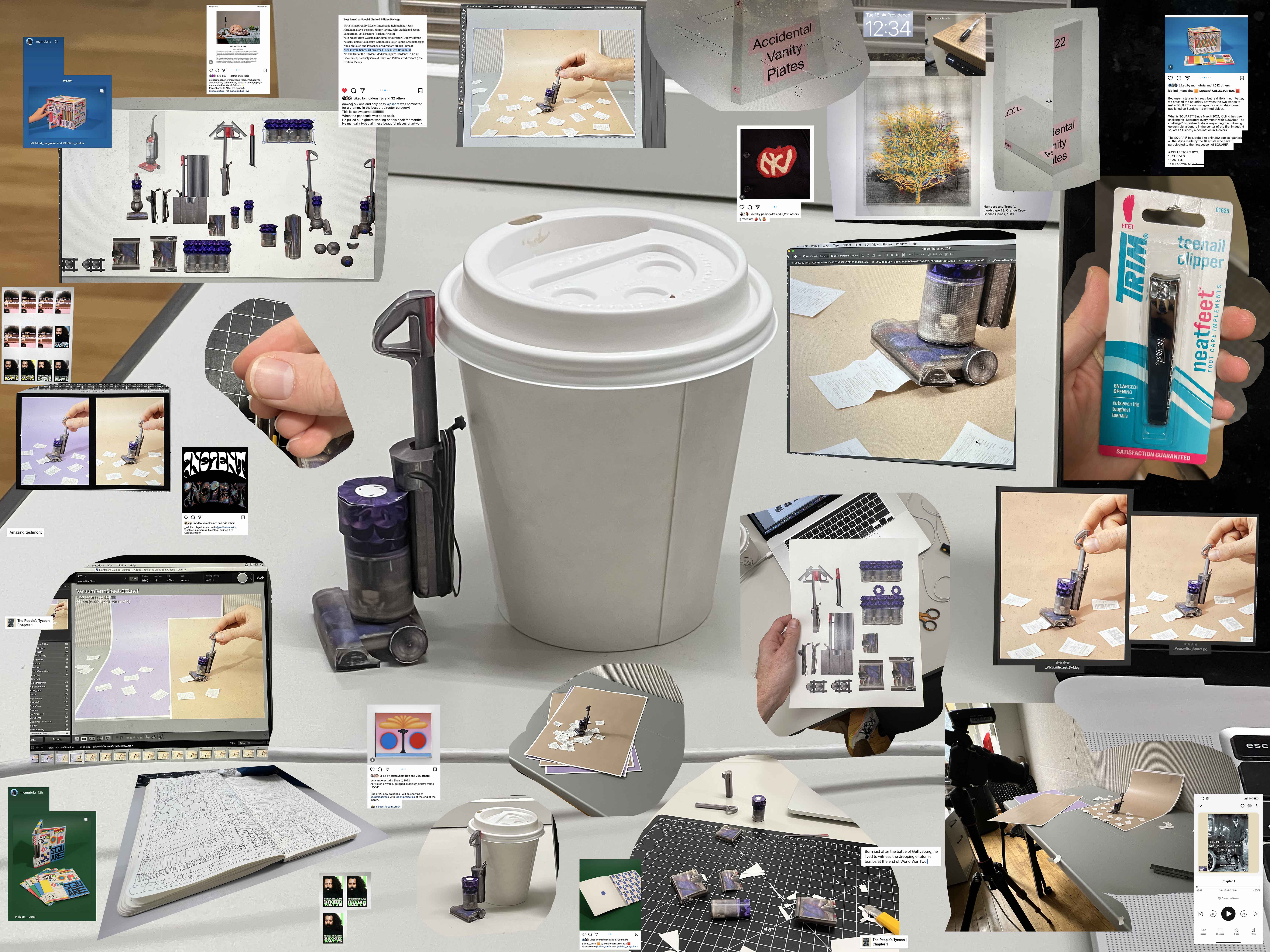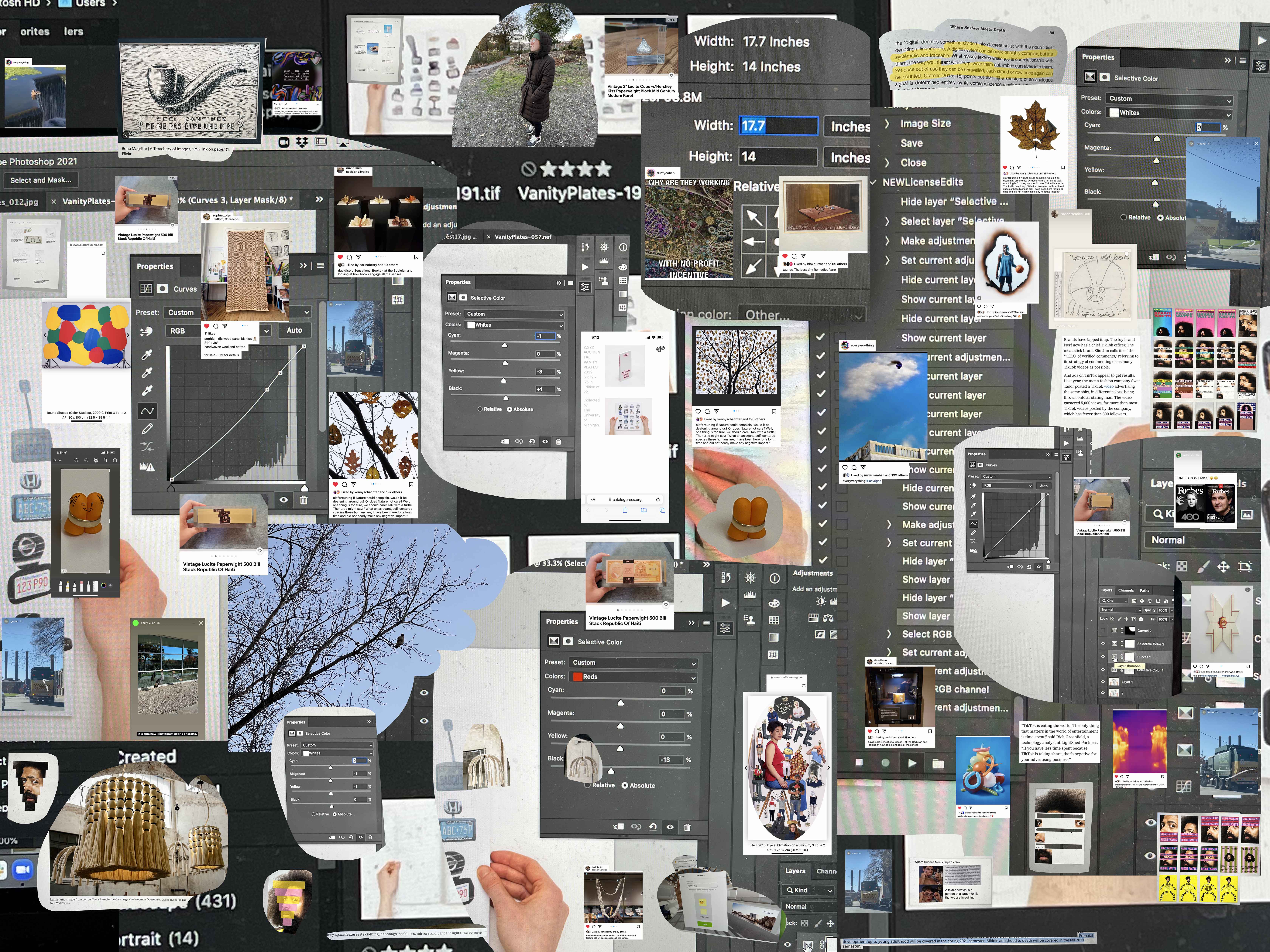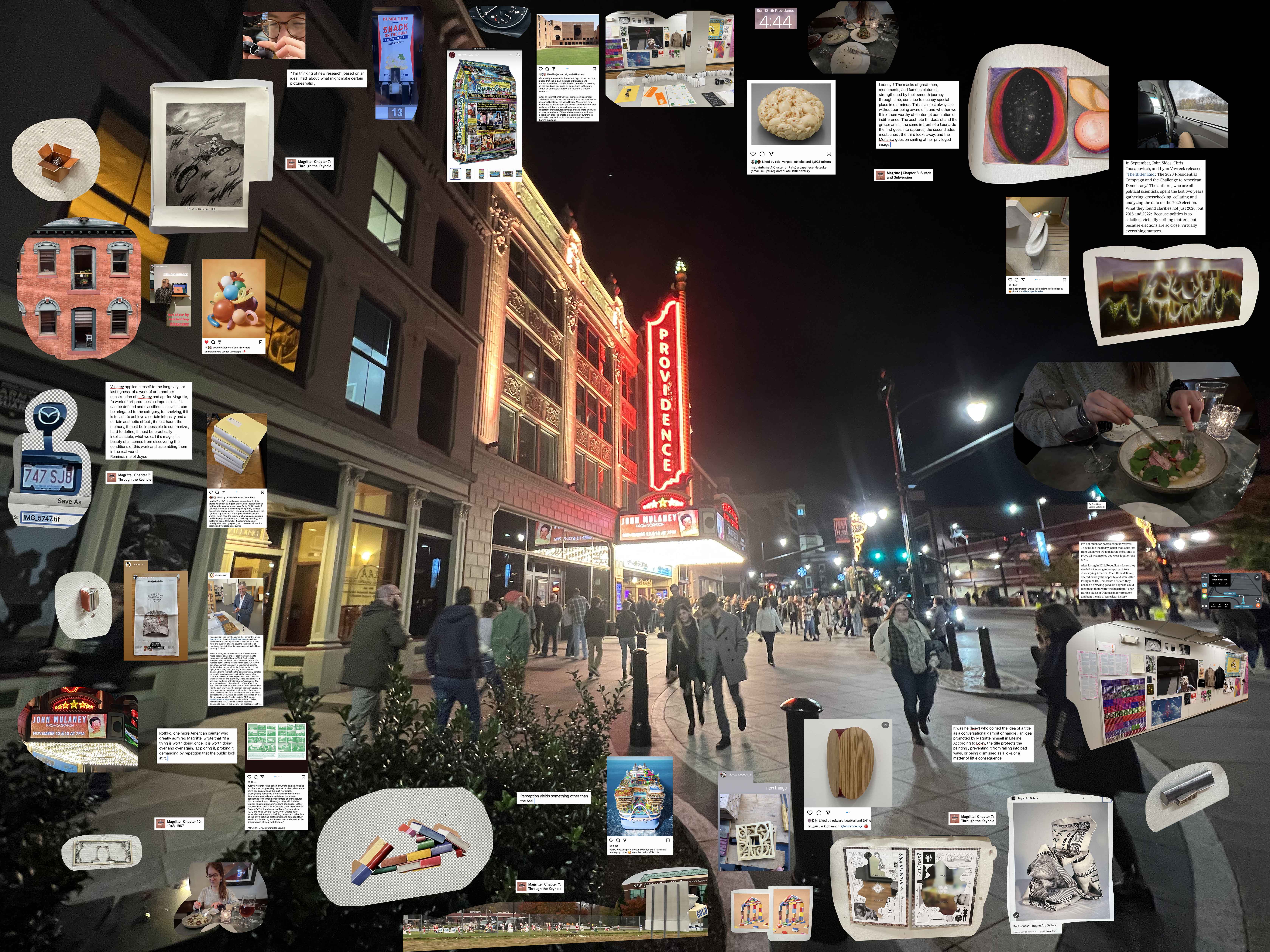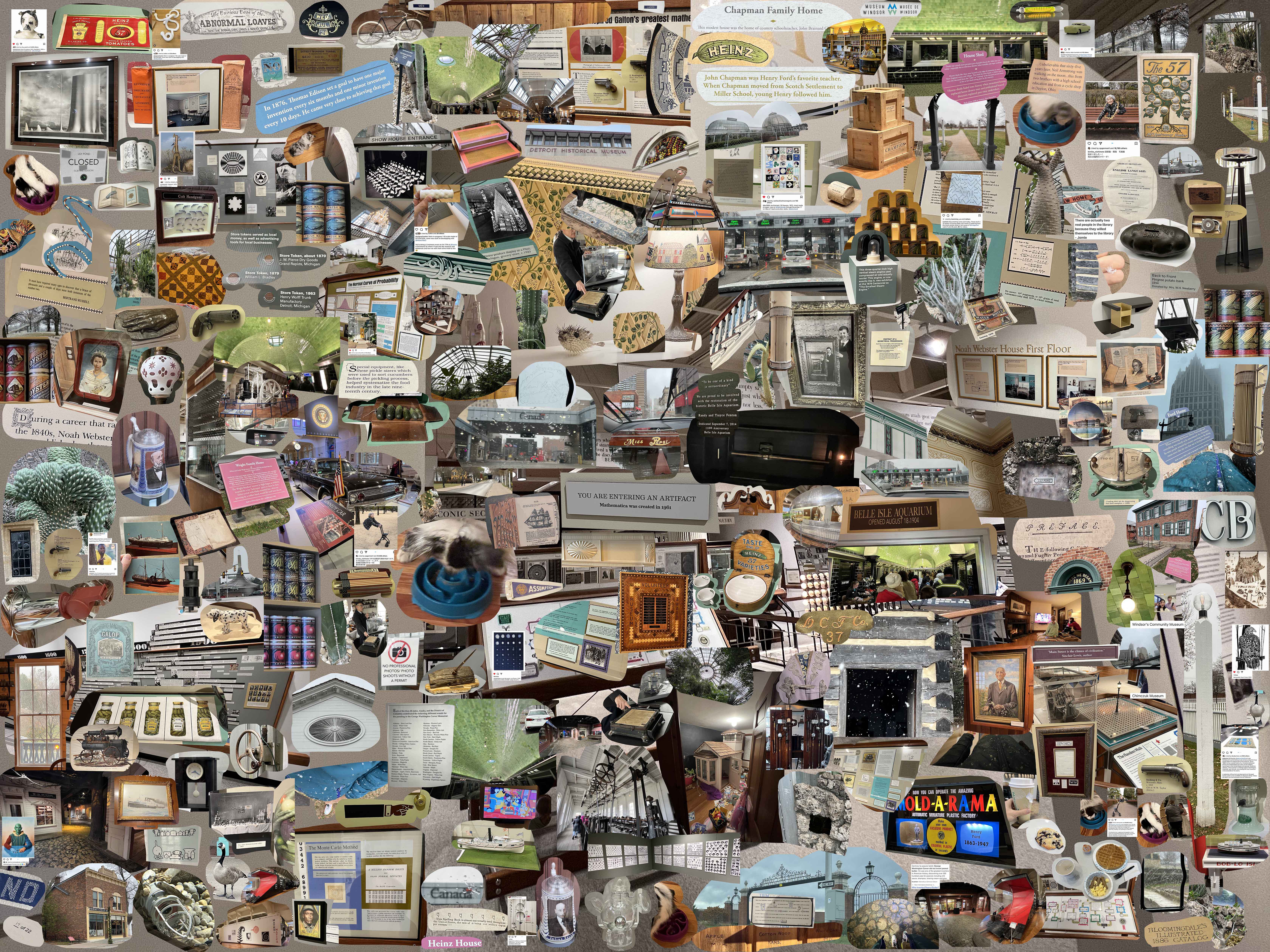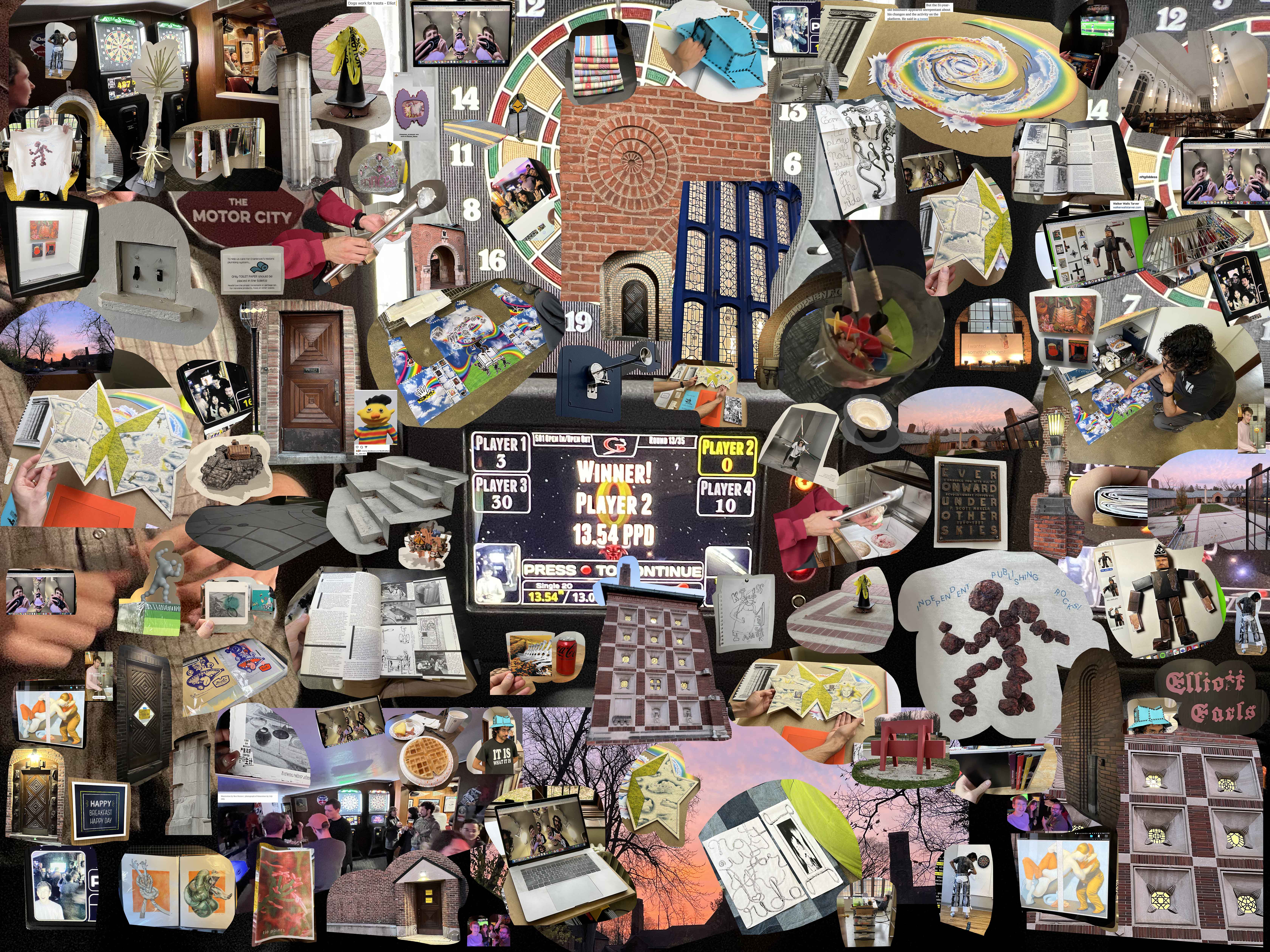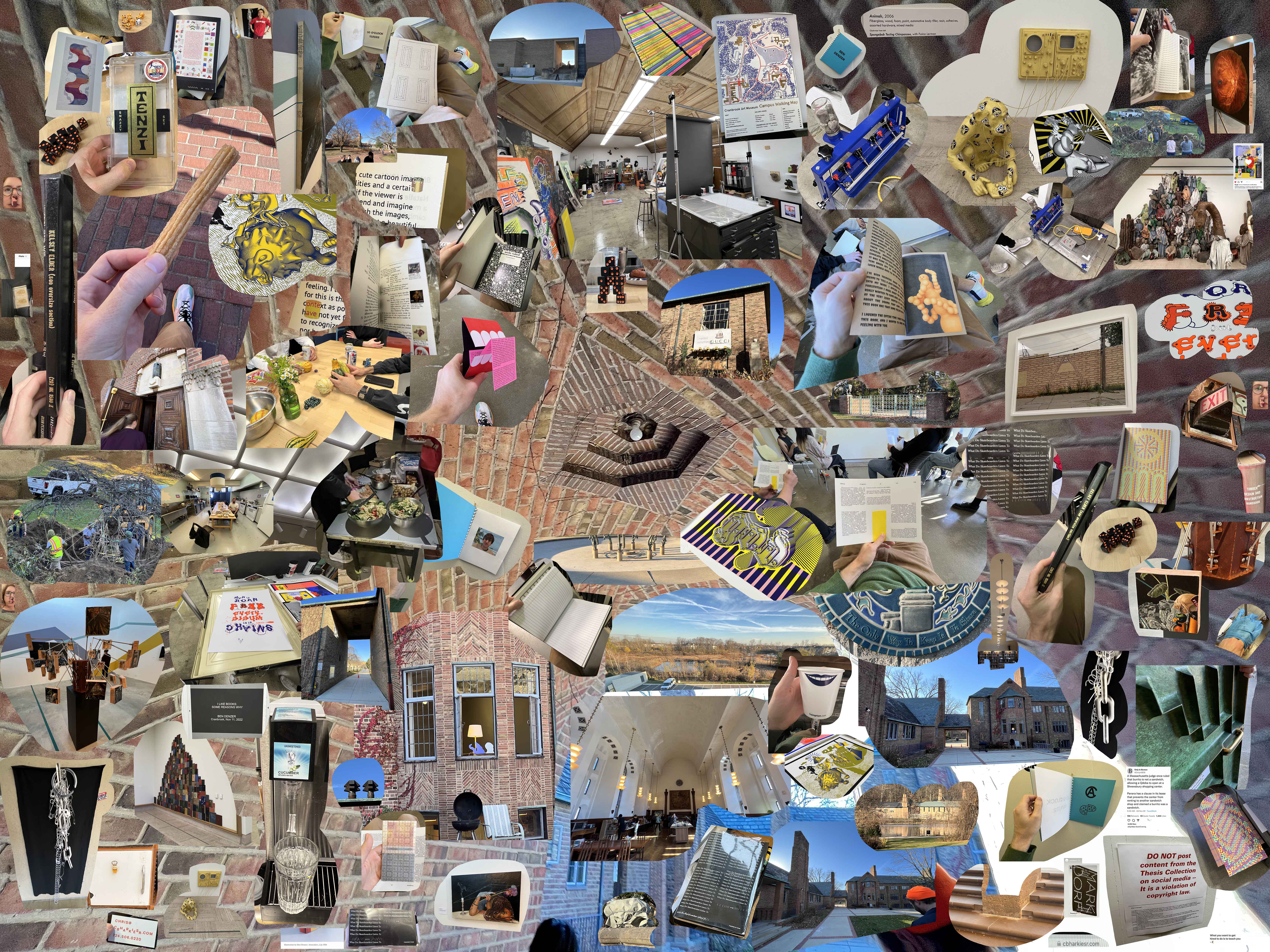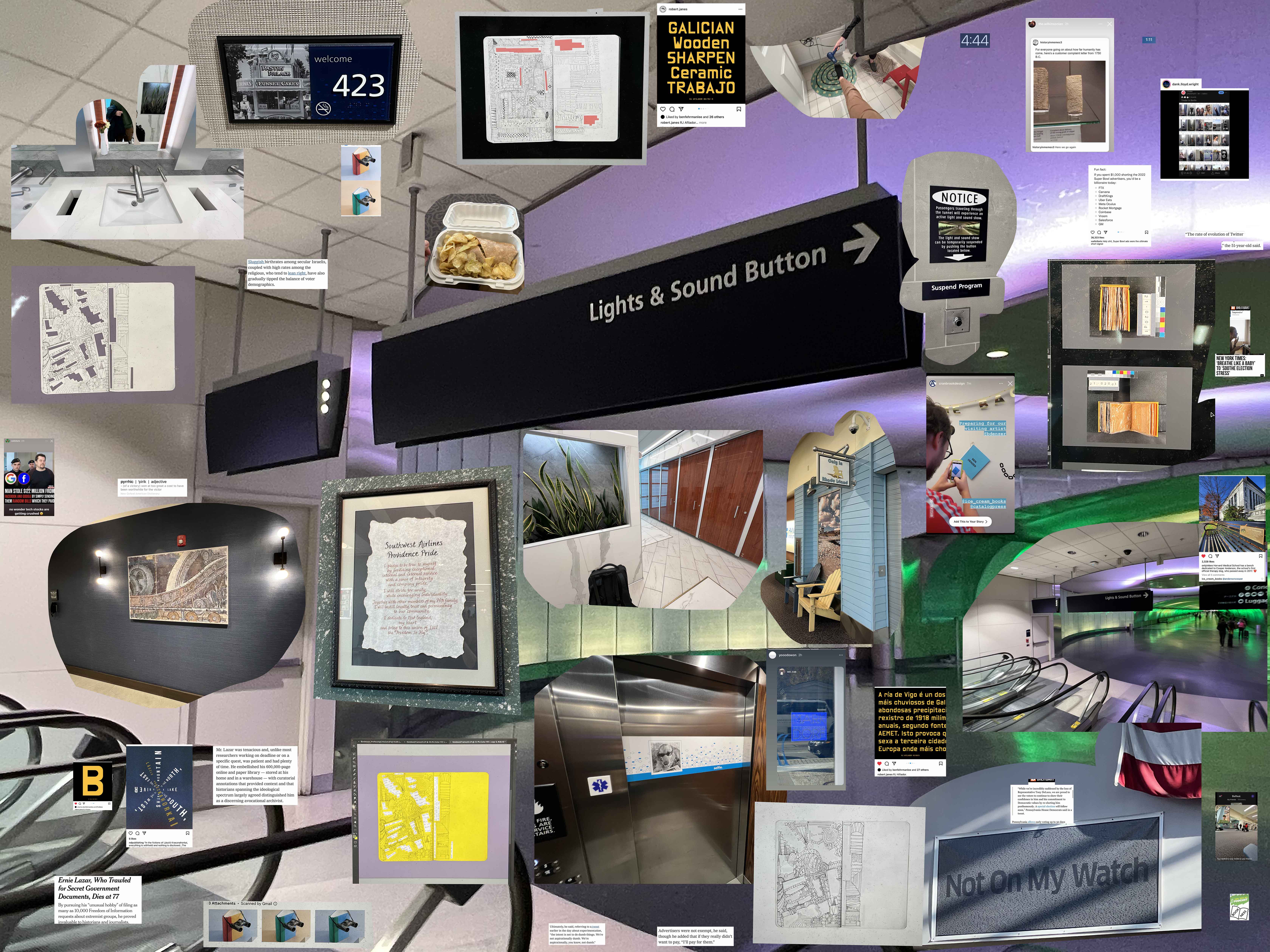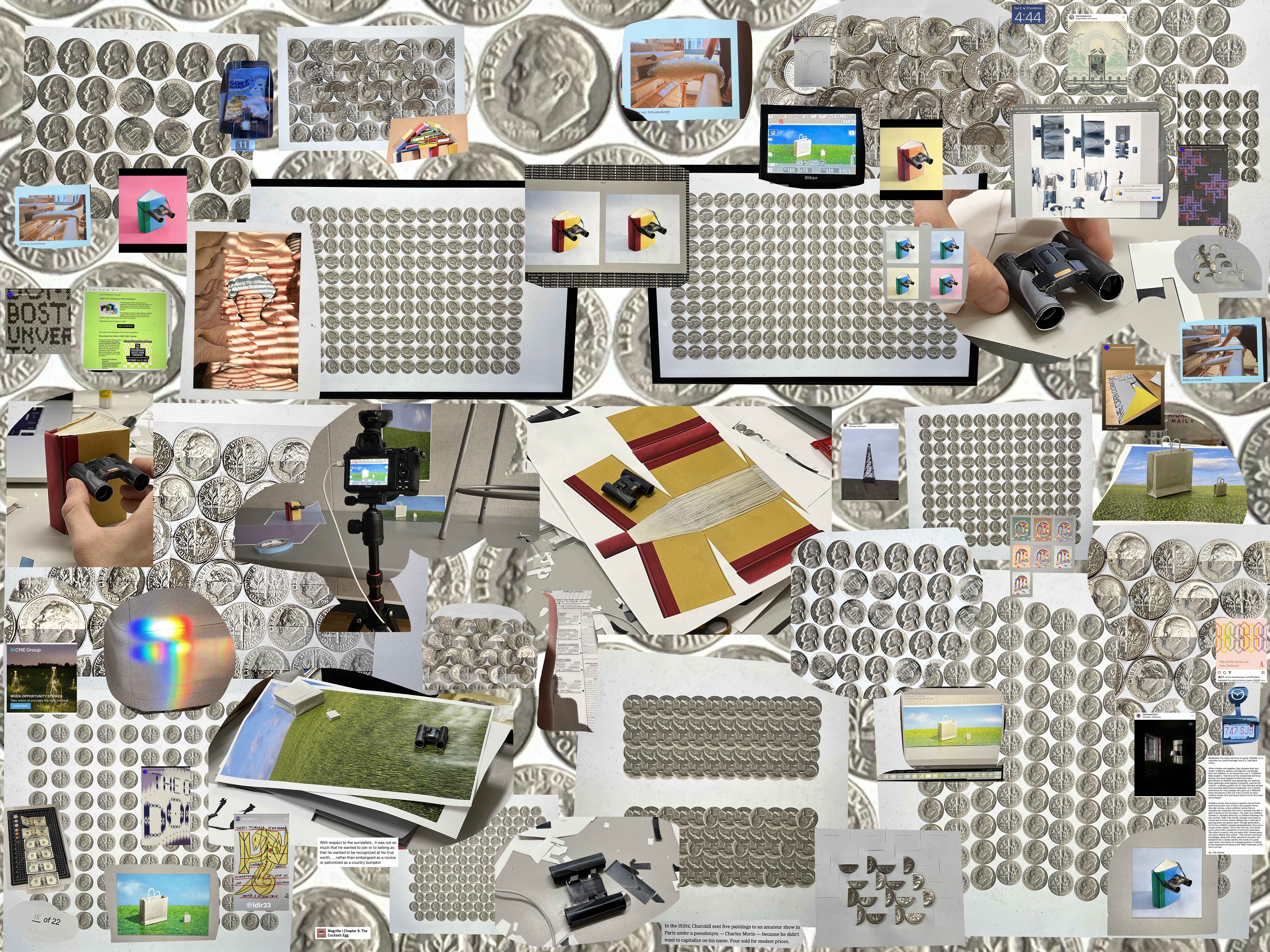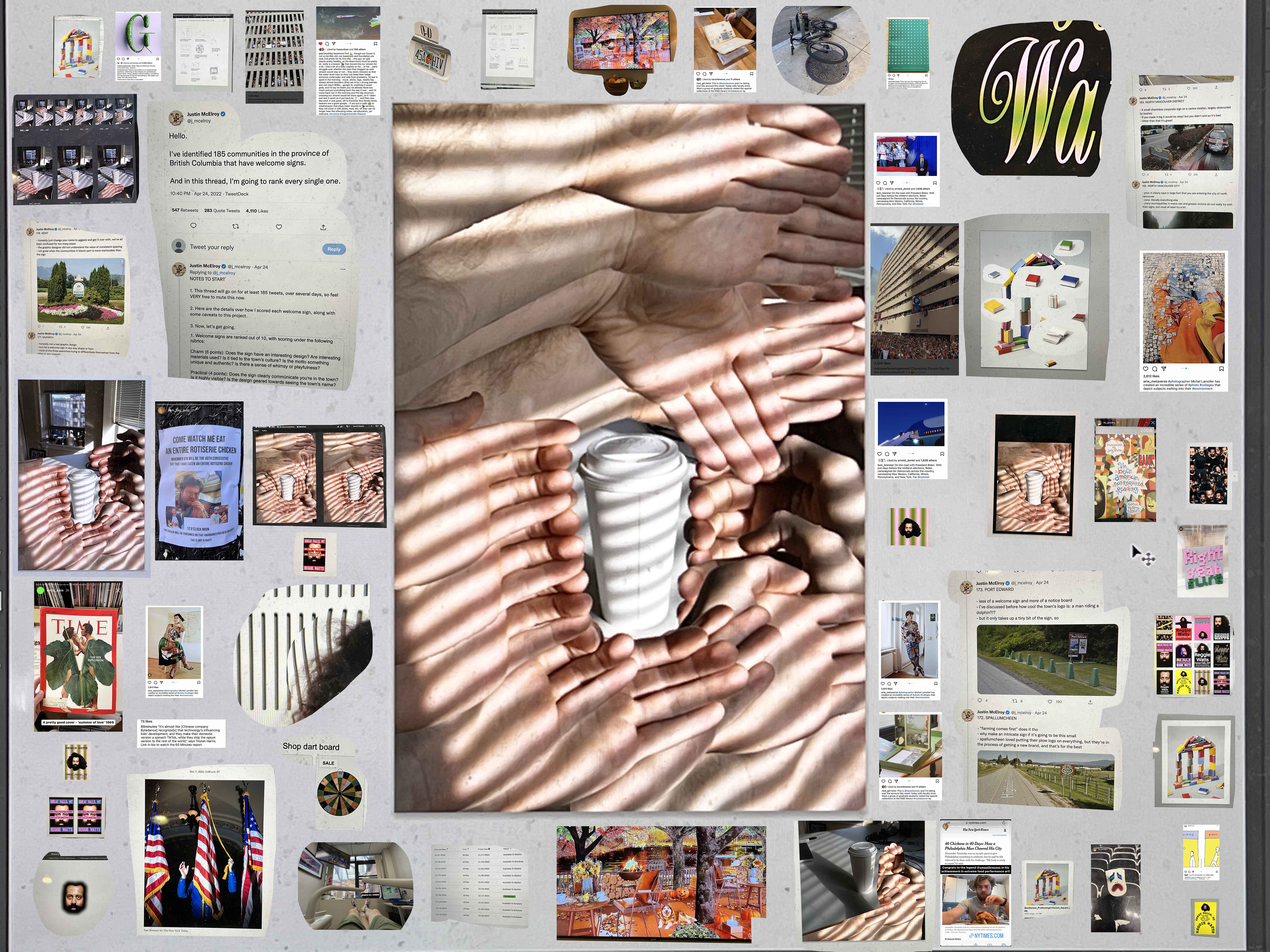Saturday, November 26, 2022
“They weren't interested in anything except efficiency of production,” he noted. “They wouldn't talk dollars and cents at all. They talked in terms of the minutes that the thing cost.”
— Steven Watts, The People's Tycoon: Henry Ford and the American Century
Friday, November 25, 2022
On August 8, 1913, one of the most celebrated photographs in American industrial history appeared in papers all over the country under a compelling headline: “The Most Expensive Picture That Was Ever Taken.” Ford amassed twelve thousand of his sixteen-thousand-strong workforce in a large open area outside the Highland Park factory—the factory had to be closed for two hours to do this, hence the expense.
— Steven Watts, The People's Tycoon: Henry Ford and the American Century
Thursday, November 24, 2022
Heart and soul
— E singing*
Wednesday, November 23, 2022
Where did you find Lily?
— E*
Tuesday, November 22, 2022
Google, will you tell me some names of the bugs I don't know? Tell me some Google.
— E talking to Google*
Monday, November 21, 2022
“He who nurses the nickels misses the knockouts,” declared this paper.
— Steven Watts, The People's Tycoon: Henry Ford and the American Century
Sunday, November 20, 2022
We kept your room just the way you left it. But only because it was too small to turn into a pickleball court.
— @asherperlman cartoon for InPickleball magazine
Saturday, November 19, 2022
The only way to become a glass modeler of skill... is to get a good great-grandfather who loved glass.
— Leopold Blaschka, 26 June 1889, "Glass Flowers: The Ware Collection of Blaschka Glass Models of Plants," Harvard Museum of Natural History
Friday, November 18, 2022
If you think about it, there are two or three people that are remembered for positive things, and everybody else it's all negative things, and the likelihood you'll be remembered for positive things is harder and harder, so the surface area of being remembered is negative.
— Chamath Palihapitiya, "Chamath Palihapitiya: Money, Success, Startups, Energy, Poker & Happiness | Lex Fridman Podcast #338"
Thursday, November 17, 2022
It does make the argument that sometimes the camera makes the picture.
— Brian on large format*
Wednesday, November 16, 2022
In a wistful, revealing comment, Ford had admitted that the Rouge, the largest plant in the world, was “so big that it's not fun any more.”
— Steven Watts, The People's Tycoon: Henry Ford and the American Century
Tuesday, November 15, 2022
He defined chili con carne as "a large mobile army"; he described Benedict Arnold as "a writer, I think."
— Steven Watts, The People's Tycoon: Henry Ford and the American Century
Monday, November 14, 2022
A digital system can be basic or highly complex, but it is systematic and traceable. What makes textiles analogue is our relationship with them, the way we interact with them, wear them out, imbue ourselves into them. Yet once out of use they can be unravelled; each strand or row once again can be counted.
— Elaine Igoe, "Where Surface Meets Depth: Virtuality in Textile and Material Design," Surface and Apparation
Sunday, November 13, 2022
It was he who coined the idea of the title as a conversational gambit or handle, an idea promoted by Magritte himself in "Lifeline." According to Nouge, the title "protects" the painting, preventing it from falling into bad ways, or being dismissed as a joke, or a matter of little consequence.
— Alex Danchev, Magritte
Saturday, November 12, 2022
There are actually two real people in the library because they willed themselves to the collection.
— Jamie*
Friday, November 11, 2022
Dogs work for treats.
— Elliot*
Thursday, November 10, 2022
(see oversize section)
— Gold foil stamping on spine of hardcover bound blank wide ruled composition notebook
Wednesday, November 9, 2022
By pursuing his “unusual hobby” of filing as many as 10,000 Freedom of Information requests about extremist groups, he proved invaluable to historians and journalists.
— Subheadline, Sam Roberts, "Ernie Lazar, Who Trawled for Secret Government Documents, Dies at 77," The New York Times
Tuesday, November 8, 2022
An artifact like a basket is neither made nor grown.
— Felicita Devlin and Elizabeth Meiklejohn, "Prototyping Textile Behavior" talk
Monday, November 7, 2022
Hello.
I've identified 185 communities in the province of British Columbia that have welcome signs.
And in this thread, I'm going to rank every single one.
— @j_mcelroy
